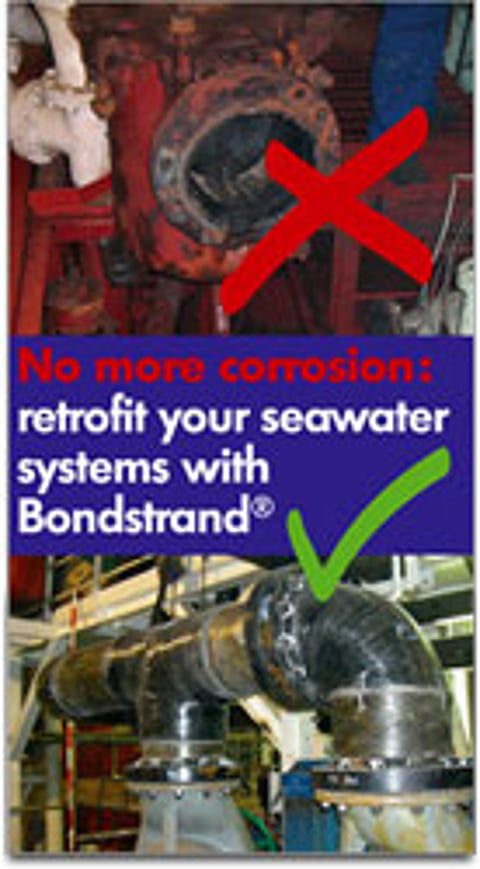

Corrosion of metallic piping is a well known problem on board seagoing vessels and offshore units. Corrosion always occurs when the piping is part of seawater systems and also in systems using acids such as for cleaning like evaporators, chemicals and other corrosive fluids.
Traditionally, corroded piping is replaced from time to time by new pipes made of the same material. This means the defect is repaired, but the problem is not solved. Future replacement of the same pipe is only a matter of time.
Leaking seawater lines are a nuisance aboard ships, especially in the engine room. Seawater spraying, or dripping from leaking pipes may also result in collateral damage to surrounding equipment and instruments.
For many shipowners and offshore operators, the exchange of piping is regarded as part of the daily routine. The time it takes to have corrosion problems can be more or less predicted based on experience and is often accepted as a fact of life. No questions are asked and systems are being repaired and replaced frequently.
Ameron's Fibreglass-Composite Pipe Group offers the solution to corrosion problems aboard ships and offshore units. Its Bondstrand glassfibre reinforced epoxy (GRE) pipe systems have a number of significant advantages when compared with steel or other metallic piping.
Bondstrand pipe systems are extremely resistant to corrosion from salt water and to a wide range of chemicals. On top of that there is almost no scaling and low pressure loss.
Bondstrand GRE pipe systems are easy to install and lightweight. They can be designed to operate at temperatures up to 121 ºC.
For further information contact:
